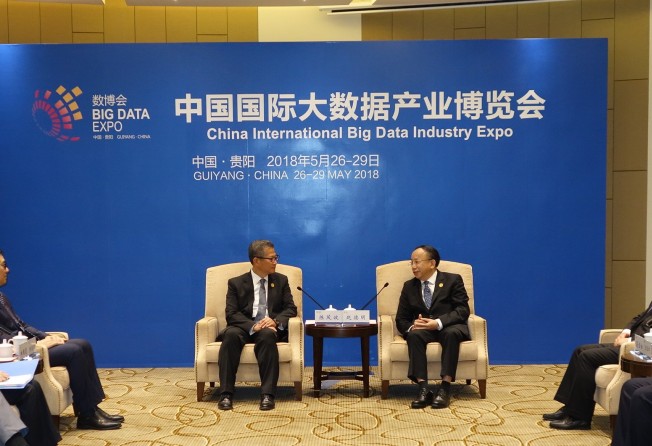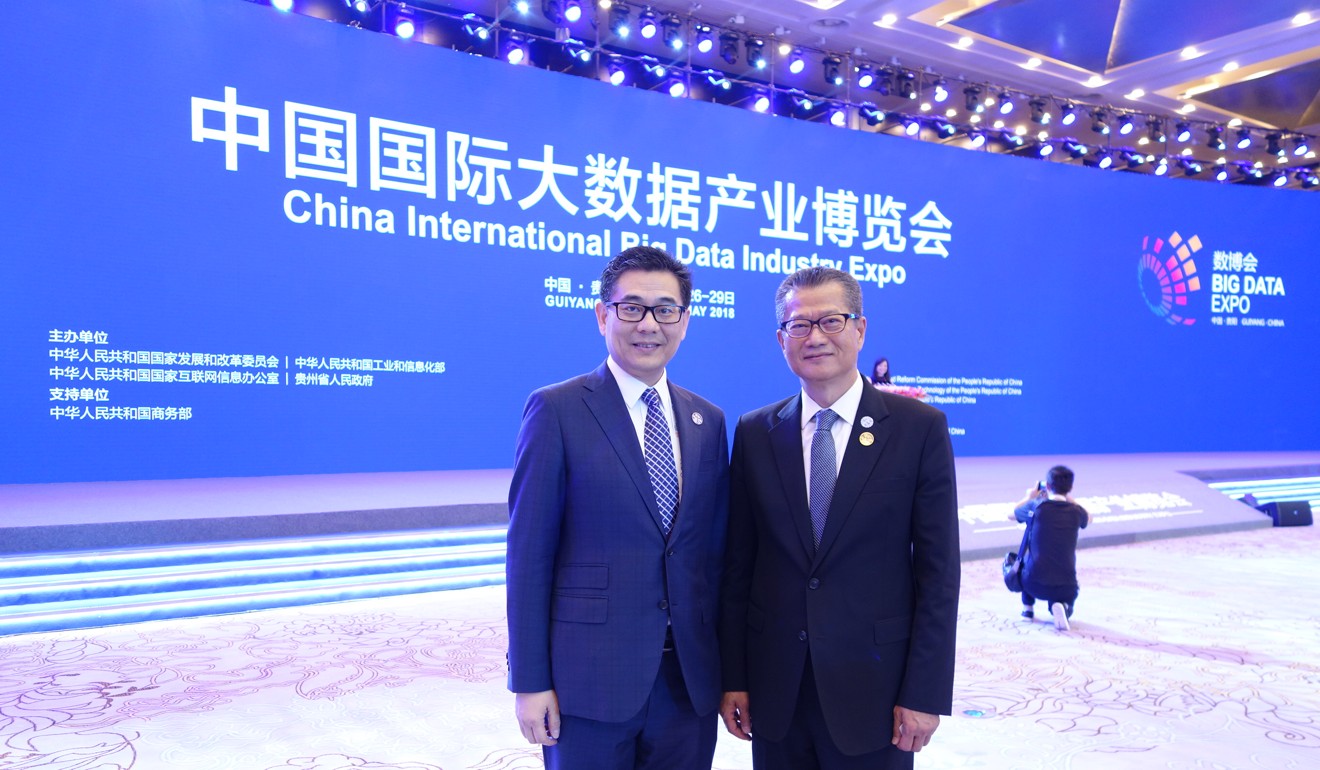
Finance chief Paul Chan wants Hong Kong to mirror success of Guizhou, one of China’s poorest provinces
Financial Secretary Chan wants to make the city the premier financial and technology centre in China, and points to Guizhou as an example of what’s possible

Two of Hong Kong’s top ministers vowed to turn the city into China’s premier financial and technology centre, in the same way that mainland cities such as Shenzhen and Guiyang have succeeded in transforming themselves into the country’s innovation hubs and boosting its economy.
Financial Secretary Paul Chan Mo-po, who visited Guizhou on Saturday and Sunday, said innovation and technology had helped the province, one of the country’s poorest, to become one of its fastest-growing regions in recent years.
Last year, the gross domestic product of Guizhou, a mountainous inland region in southwestern China, was 1,354 billion yuan (US$211.9 billion) – a 10.2 per cent increase from the year before. In comparison, China’s GDP grew by 6.9 per cent, while Hong Kong’s GDP grew 3.7 per cent to US$340 billion last year. Guizhou’s population was 35.8 million, and Hong Kong’s was 7.4 million.

Chan, who attended the China International Big Data Industry Expo at Guizhou’s capital of Guiyang, said the province’s economic development had lagged behind in the past but turned around.
“In recent years, provincial leaders [realised] the potential of big data and obtained national policy support,” he said. “It is starting to bear fruit, and the province has found its way in catching up [with the rest of the country].”
The financial secretary added that, with Beijing’s policy support, technology giants such as IBM, Microsoft, Qualcomm and Huawei had set foot in Guizhou.
Under China’s tough cybersecurity law, which came into force in June last year, foreign businesses have to save data containing information about Chinese consumers on mainland servers. To comply, Apple is now saving its iCloud data for mainland users on servers in Guizhou.
Chan went on to say in his weekly official blog that Hong Kong can also become a global innovation and technology hub, under Beijing’s recent decision to allow the city’s scientists access to national-level funding.

“President Xi Jinping has issued directives in support of that,” he wrote. “As long as we set clear goals, invest resources, attract and train talented people, and solve difficulties one by one, we can create a new future for our pathway to innovation.”
In June last year, Hong Kong slipped for the fourth year in a row in a global benchmark of innovation, ranking 16th globally – its lowest ever position – and behind regional competitors Singapore, South Korea and Japan, according to the Global Innovation Index co-published by Cornell University, INSEAD Business School, and the United Nations’ World Intellectual Property Organisation.
Separately, Chief Secretary Matthew Cheung Kin-chung, Hong Kong’s No 2 official, also wrote on his official blog that the city can “develop and prosper with” mainland China if it can seize the opportunities offered by Beijing’s ambitious trade and integration strategies.
Cheung said in the 1980s, he worked for the Hong Kong colonial government as an official in the Northern District, and had to go across the border to meet mainland Chinese officials in Shenzhen.
“Shenzhen was just starting to develop as a special economic zone … and there was sometimes no electricity supply at the place where we met,” the 66-year-old wrote, adding that Shenzhen had now
transformed into “the country’s innovation stronghold”.
Cheung said Hong Kong was being supported by Beijing to strengthen its status as an international financial centre. The city has to further capitalise on the central government’s policies in the future.